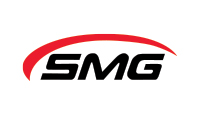EPA is teaming up with New Jersey’s Bayonne Municipal Utilities Authority (BMUA) to evaluate effectiveness of control technologies for wet weather overflow treatment and disinfection. EPA researchers have recommended emerging treatment strategies for disinfection of combined sewer overflows based on feasibility studies. The purpose of the full-scale pilot project is to gather performance data to provide defensible justification when selecting treatment technologies. An independent third party will verify the results of the $1.3 million demonstration project.
According to information from New Jersey’s Sustainability and Green Energy Team within the Dept. of Environmental Protection, verification will include the following:
- The effectiveness of UV and other disinfection technologies to inactivate pathogens such as fecal-coliform, E-coliform, total coliform, and enterococci.
- The performance of certain high-rate and advanced high-rate separation devices to reduce solids and nutrients.
- Effective green/clean energy technologies to provide power to remotely located physical and chemical disinfection systems.
Collaborators (both for funding & technical assistance) include US EPA, New Jersey DEP, BMUA, City of Bayonne, Rutgers University, and Passaic Valley Sewerage Commission.
CSO communities, or those who have wastewater and stormwater flowing in the same pipe, will undoubtedly be interested in the results of this project.
Sources: 1) http://www.nj.gov/dep/sage/wwflow.html# 2) hudsonreporter.com; “Slip Sliding Away” 8/27/14 article by Joseph Passantino.
